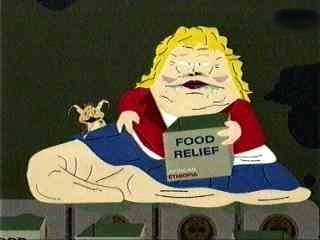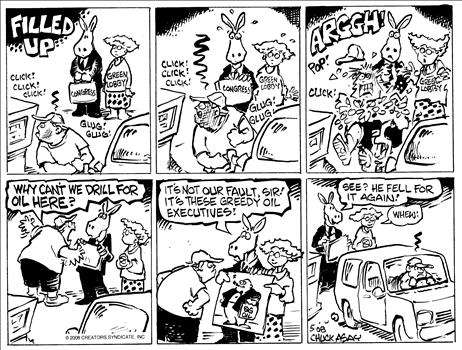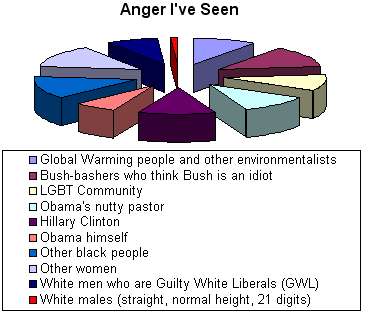…and I think this goes for all children. We have an unfortunate tendency, as parents and caregivers, to conceal from them the things they’ll need to know whey they grow up.
Is it shame? Probably. This seems, to me, to be the stuff we have that we weren’t designed to have. Like it’s the stain we painted on ourselves the day Eve got Adam to eat that apple. We tend to be very weak when it comes time to look at people who are better than we are, and say to ourselves “I am flawed, for I am not like that; I shall put great effort into trying to improve myself.” We tend to think highly of the way we do things, when we see others who do things better; and, to think more highly of the other, when we find out he makes a bigger mess than we do.
1. People who litter, don’t want anyone else picking it up.
2. People who break the law, tend to act superior to people who do not.
3. People who don’t read anything, don’t want anyone else to be well-read.
4. People who don’t work hard, don’t want anyone else to work hard either.
5. People who don’t believe in God, don’t want anyone else to believe in Him either.
6. People who don’t engage in free trade, don’t want anyone else to engage in it either.
7. People who follow arbitrary rules, want everyone else to be forced to follow the same rules.
8. People who wear ugly, ratty and dirty clothes all the time, don’t want anyone else dressing up.
9. People who don’t write anything down, get upset and frustrated when they see someone else has.
10. People who talk a lot, have a tendency to form acrimonious relationships with people who do not.
11. People who don’t exercise their right to free speech, don’t want anyone else speaking freely either.
12. Women who are ugly because they don’t take care of their bodies, don’t want anyone going to Hooter’s.
13. People who don’t and can’t show any class, have a strong likelihood to feign offense on behalf of someone else.
14. People who don’t make a material success of themselves and their efforts, don’t want anyone else to prosper either.
15. People who have been duped by something and have come to realize it, want everyone else to be duped in the same way.
16. People who are overly concerned about their emotions, don’t want anyone else to be overly concerned with thinking.
17. People who will not protect their families from harm, come up with creative and ingenious ways to condemn those who will.
18. Students who get poor grades, have been known to show some nasty behavior toward fellow students who get better grades.
19. People who live in the same town where they were born, have an envious and vituperative attitude toward people who do not.
20. People who don’t take care of their health and physical appearances, tend to have some pretty harsh words for people who do.
21. People who won’t take the initiative to see what needs doing and do it, don’t want anyone else to take the initiative either.
22. People who wear the latest fashions, tend to get nasty and vicious toward other people who spend their energy on other things.
23. People who are lazy when it comes to teaching their sons to be men, don’t want masculinity to be appreciated by anyone else either.
24. People who imagine themselves as part of a group, with no individual identity, don’t want anyone else to have an individual identity either.
25. People who can’t solve problems because they don’t think rationally, work pretty hard to avoid acknowledging that someone else solved a problem.
26. People who have taken mind-altering drugs, have a tendency to show an imperious, snotty and condescending attitude toward people who never have.
27. People who make a conscious decision not to offer help or defense to someone who needs it, don’t want anyone else to help or defend that person either.
28. People who have never built anything and don’t imagine they ever will, have a desire to destroy that which builds, and preserve whatever is likely to destroy.
29. Wives who diligently avoid doing anything that might make their husbands happy, engage in delusion when excoriating other wives who will do those things.
30. People who imagine they’ve been “oppressed” in the past, single out supposed beneficiaries of said oppression, and imagine themselves entitled to their property.
Update 7/3/08:
I should add something about words, because I know a lot about people that I wasn’t told when I was a child about what people mean when they use certain words. Some of the words we use don’t mean what they are supposed to mean. Among those words, some of them never mean what they’re supposed to mean. They mean, if anything, the exact opposite.
Everyone/body: This one has to come first because it is, by far, the most abused. This is annoying to everybody, this is the only meeting date we found that will work for everyone, we need to put this guy someplace where he won’t piss everybody off, everybody agrees this is a good idea, everybody’s tired of you, we need to form a policy that will work for everyone. The word “everybody” does not mean everybody, and “everyone” does not mean everyone. Those words mean “me; an elite club of people I’ve met who agree with me; and anyone I meet from here on who agrees with me.”
Torture: This word has no definition save for “stuff I wouldn’t like having done to me if it was me.” That’s not really a problem, except it tends to be tossed around rather breezily as an argument for doing away with some sort of punishment or aggressive interrogation, and both of those are rather pointless if they aren’t unliked right?
Constitution: “Shredding the Constitution” means “doing something you wouldn’t be allowed to do if I had my druthers.” It has nothing to do with that old piece of parchment or anything metaphorically based on it. It’s a buzzword thrown in to make it sound like you’re sagaciously citing an historical document, when all you’re doing is expressing a personal taste.
Civil liberties: What you use instead of the word “Constitution” when you’re afraid that, if you actually use the word “Constitution,” someone will ask for a more specific citation. There is no “civil liberty” document with all those pesky articles and sections and amendments, so you can just opine away about “civil liberties” until you’re blue in the face and no one will ever call you on your crap.
Common-Sense: What I want, and hell with everyone else.
Tolerance: This is another one of those “opposite” words. Usually, when you’re accused of being intolerant it means you’ve tolerated something someone wishes you didn’t. And, if you’re credited with being tolerant, it means you’ve refused to tolerate something.

Open-minded: Another “opposite” word. Open-mindedness is demonstrated by a steadfast refusal to be told certain things. If you weigh the evidence even-handedly and show a fair consideration to all possible conclusions, you haven’t long to wait before someone will call you closed-minded.
Diversity: If “diversity” means anything at all, it certainly doesn’t refer to actual diversity, especially with regard to skin color. Today you can claim to be embracing “diversity” if everyone in your office has exactly the same skin color, as long as it’s a “good” color.
Science: Has two definitions, an old one and a new one. The old one has to do with learning facts and forming reasoned conclusions from the facts…testing them with theories…all that good stuff. The new definition has to do with keeping a ++ahem++ open mind (see above) about possible explanations…which means, of course, safeguarding sacred cows against reasoned challenge. Or, as I put it in the glossary, “a credentialed collective of academic elites who use democratic, political and coercive techniques to decide amongst themselves what is so.”
Skeptical: Another “opposite” word. Skeptics, once told what to think, dutifully think that and nothing else. If you’re told what to think and you start coming up with these annoying problems with it and pesky questions, you are not showing proper “skepticism” — although this is the essence of the classic definition of the word.
Fascist: Nobody has the slightest clue what this word means anymore. It’s just something liberals call you when you back them into a corner.
Greed(y): Nobody knows what this word means either, it has lost all definition. If we are pressed to come up with one, it would be “expressing or acting on a desire to keep your property after I’ve decided you should be deprived of it.” Protesting or resisting theft.
Solidarity: This means, according to the dictionary, “union or fellowship arising from common responsibilities and interests”; but in real life there’s a twist to it because you have to have communist goals. There is no “solidarity” if you are forming a fellowship for the purpose of…legalizing the private possession of firearms, setting up a system of private school vouchers, petitioning Congress to drill stateside for oil, or abolishing the capital gains tax. Solidarity means upholding no standards of performance save for that which is mediocre. A perfect example is all those nitwit teenagers changing their middle names to “Hussein” to show solidarity. “Showing solidarity” has to have something to do with sameness — you don’t set a new bar and challenge people to make themselves better, in any way, for solidarity.
Wealthy: It no longer means having a high net worth or enjoying a high income. If I tell someone you are a “wealthy” person, what that really means is you have something I wish you didn’t have. On your economic status in relation to me, or to that other person, it says nothing. You can be much poorer than me, and I can still think you’re “wealthy” if I have ambitions about making you even poorer than you are now.










 Oh, I’m sure the U.N. Food and Agricultural Organization (FAO) might be doing something to alleviate the problem of world hunger besides blaming America…and holding press conferences to blame America…and distributing press releases that blame us…and holding conventions to blame us…
Oh, I’m sure the U.N. Food and Agricultural Organization (FAO) might be doing something to alleviate the problem of world hunger besides blaming America…and holding press conferences to blame America…and distributing press releases that blame us…and holding conventions to blame us… Danny, who was now driving the old Stevens and displaying an active interest in girls, needed a regular income to sustain his racy life style. I had achieved varsity status on the Prospect High basketball team and was looking for new and larger worlds to conquer. Bobby, two years my junior, had not yet exhibited the same restlessness, but soon his strong commercial inclinations would involve him in the general revolt. For the moment, however, our fathers’ firm opposition thwarted all of these noble aspirations.
Danny, who was now driving the old Stevens and displaying an active interest in girls, needed a regular income to sustain his racy life style. I had achieved varsity status on the Prospect High basketball team and was looking for new and larger worlds to conquer. Bobby, two years my junior, had not yet exhibited the same restlessness, but soon his strong commercial inclinations would involve him in the general revolt. For the moment, however, our fathers’ firm opposition thwarted all of these noble aspirations. It seems an odd time, to me, to have a re-awakening of this chasmal culture conflict between Drowning in Ocean of Estrogen, and the re-emergence of the Totem of Strong Manhood from the waves. In ’82, we had a new Republican President, with a great big bagful of masculine policies to be implemented both domestically and in our foreign policy. And he was still popular. Now, we’re winding up the second term of a Republican President, and while some of his policies are masculine our prevailing sentiment is that we have become fatigued with him. He’s tried to recover some scraps of what was once his re-electability by watering down his platform, becoming quasi-liberal, and (does this not always seem to be the case) it’s backfired on him terribly.
It seems an odd time, to me, to have a re-awakening of this chasmal culture conflict between Drowning in Ocean of Estrogen, and the re-emergence of the Totem of Strong Manhood from the waves. In ’82, we had a new Republican President, with a great big bagful of masculine policies to be implemented both domestically and in our foreign policy. And he was still popular. Now, we’re winding up the second term of a Republican President, and while some of his policies are masculine our prevailing sentiment is that we have become fatigued with him. He’s tried to recover some scraps of what was once his re-electability by watering down his platform, becoming quasi-liberal, and (does this not always seem to be the case) it’s backfired on him terribly.

 TO: ISLAM
TO: ISLAM From time to time I hear about “angry white males.” It occurs to me that simply requesting some evidence to substantiate this theoretical phenomenon, observed first-hand, is to deal it a devastating blow, especially since probably ninety percent or more of the times I’ve heard this phrase have been since the 1994 elections.
From time to time I hear about “angry white males.” It occurs to me that simply requesting some evidence to substantiate this theoretical phenomenon, observed first-hand, is to deal it a devastating blow, especially since probably ninety percent or more of the times I’ve heard this phrase have been since the 1994 elections. [The image] appeared as rumours swept the Internet that the FBI was warning that an Al Qaeda video was about to be released urging militants to use weapons of mass destruction to attack the West.
[The image] appeared as rumours swept the Internet that the FBI was warning that an Al Qaeda video was about to be released urging militants to use weapons of mass destruction to attack the West.